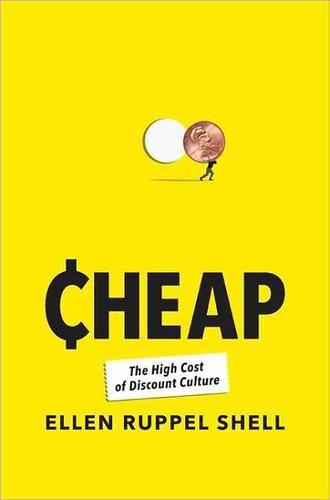
Cheap: The High Cost of Discount Culture
by
Ellen Ruppel Shell
Published 2 Jul 2009
People loved the shiny stuff—especially large appliances: washing machines, vacuum cleaners, and refrigerators. Everyone wanted the biggest and the best, and in hot new colors like avocado green. The media had cast these mechanical marvels as freedom machines, transformers of the dreary into the fabulous. Washing machines banished the drudgery of “washing day”; freezers made the dream of TV dinners come true. To cite but one remarkable example, General Electric ran an advertisement entitled “Things My Bill Has a Right to After It’s Over,” referring to the postwar world as seen through the eyes of the wife of a young soldier.

A Little History of Economics
by
Niall Kishtainy
Published 15 Jan 2017
Brother, can you spare a dime?’ The song tells of one of the sources of America’s wealth: the thousands of miles of railways that moved goods and people between ports, factories and cities. At the end of the 1920s food was plentiful, many people owned their own homes, and products such as washing machines that did away with domestic drudgery were within reach of ordinary Americans. But as the song said, only a few years later many workers who’d helped build the wealth were reduced to begging. By 1933, 13 million Americans were unemployed, a quarter of all the workers. In some cities half were out of work. The railways carried a new cargo: millions of people stowed away in the freight cars, criss-crossing the country looking for work.
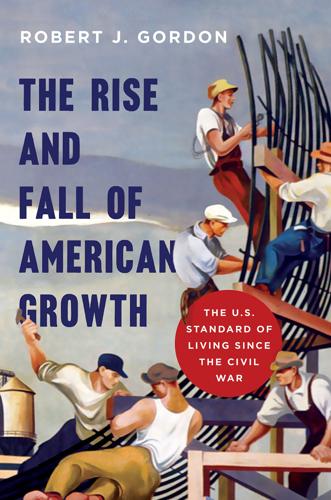
The Rise and Fall of American Growth: The U.S. Standard of Living Since the Civil War (The Princeton Economic History of the Western World)
by
Robert J. Gordon
Published 12 Jan 2016
The early data for washing machines in the 1940s and 1950s need qualification, for some of the machines in question were equipped with hand wringers to squeeze the water out of the clothes, requiring human effort no longer required by fully automatic washing machines with their mechanical spinning wash tubs. Whereas washing machines eliminated the previous drudgery of the washboard described in chapter 8, the arrival of the clothes dryer eliminated the tedious task of hanging clothes on outside clothes lines, where the drying process could be interrupted by rain or where, in industrial cities, the clean clothes could be coated with soot and pollution.

Roller-Coaster: Europe, 1950-2017
by
Ian Kershaw
Published 29 Aug 2018
The fridge and the washing machine were increasingly commonplace in middle-class households but within two decades, as their price dropped, became accessible also to working-class families. By the early 1970s most households had a fridge, and could for the first time buy food in bulk for storage and later use. Two-thirds of families by then had a washing machine, freeing women for the most part from a significant element in household drudgery. A big status symbol in the 1950s was ownership of a television. Britain began in the lead, but when television had launched there in 1946 there had been only 1,760 subscribers. By the mid-1960s there were 13 million television sets in Britain, nearly 10 million in West Germany, 5 million in France and Italy, about 2 million in Holland and Sweden.
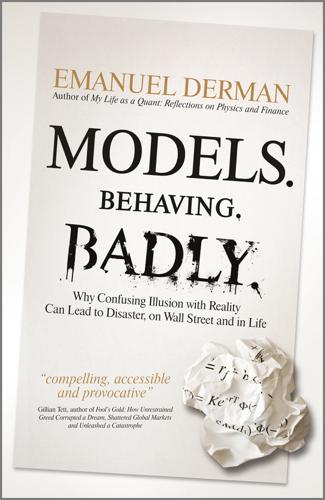
Models. Behaving. Badly.: Why Confusing Illusion With Reality Can Lead to Disaster, on Wall Street and in Life
by
Emanuel Derman
Published 13 Oct 2011
Once you understand that a model isn’t the thing but rather an exaggeration of one aspect of the thing, you will be less surprised at its limitations. Let Someone Else’s Fingers Do the Walking Thinking for yourself is hard work, and models save mental labor. Like the vacuum cleaner and washing machine that promised to liberate suburban housewives of the 1950s from drudgery, models provide easy and automated ways of letting other people do the thinking for you. When I worked on my PhD thesis to test the Weinberg-Salam Model in the early 1970s, I carried out each calculation using Feynman diagrams, the cartoonlike representations invented by Richard Feynman in the late 1940s to systematize and enumerate the ways particles interact during collisions.
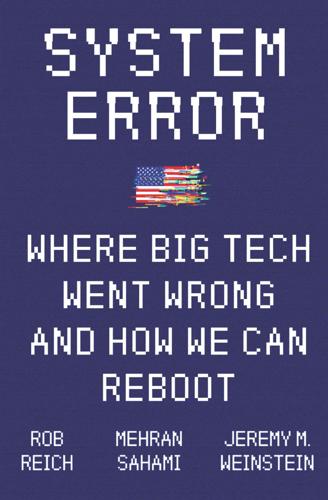
System Error: Where Big Tech Went Wrong and How We Can Reboot
by
Rob Reich
,
Mehran Sahami
and
Jeremy M. Weinstein
Published 6 Sep 2021
Before the advent of washing machines, cleaning clothes was a time-consuming process of soaking, soaping, rinsing, and drying each garment. The washing machine is nothing more than an automated system that relieves the need for human labor. And to the great benefit of humanity! Washing machines not only liberated humans from the boring, labor-intensive task of doing laundry but, given the traditional division of labor in households around the world, freed women in particular from drudgery. Does anyone lament the diminished place of human labor in the task of doing laundry? We doubt it. Washing machines are not especially intelligent, but they are more effective and much more efficient than humans.
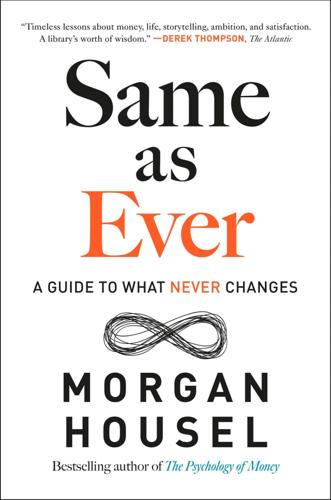
Same as Ever: A Guide to What Never Changes
by
Morgan Housel
Published 7 Nov 2023

Why the West Rules--For Now: The Patterns of History, and What They Reveal About the Future
by
Ian Morris
Published 11 Oct 2010
In 1920 came latex condoms; in 1960 the oral contraceptive; and in rich countries the birth rate dropped below the replacement level of two per couple. As healthier children and the pill released women from lifetimes of breeding, cheap electrical heating coils for irons and toasters and little motors for washing machines and vacuum cleaners released them from household drudgery too. Pressing a button took care of tasks that previously called for hours of tedious labor. A woman’s work was still never done, but by 1960 she could jump in the car (almost every American family had one), drive to the supermarket (where two-thirds of the country’s food was sold), store her purchases in the refrigerator (98 percent of houses had them), and put the laundry on before the two or three kids got back from school and settled in front of the TV.

The Miracle Pill
by
Peter Walker
Published 21 Jan 2021
No one wants a return to mass, repetitive manual labour. And beyond a handful of hair-shirted survivalist types, few would suggest having to carry in piles of wood from a shed every day for heating and cooking. Similarly, domestic appliances like the washing machine and vacuum cleaner have liberated millions of people – almost universally women – from hours of daily drudgery. This is, instead, about finding new ways to put physical effort into modern lives. Nor is this intended as a handbook for better health, or a detailed policy manifesto. There are plenty of those already available. Consider it more a guide through this often unnoticed phenomenon and its many consequences, which are hiding in plain sight in virtually every country across the world.
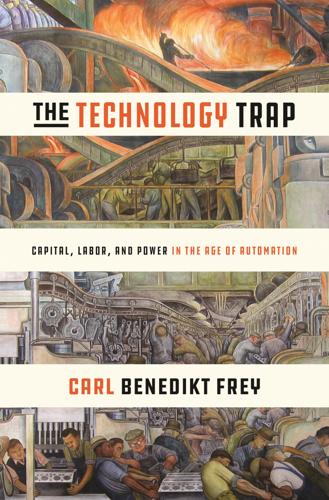
The Technology Trap: Capital, Labor, and Power in the Age of Automation
by
Carl Benedikt Frey
Published 17 Jun 2019
Revolutionary technologies like automobiles, refrigerators, radios, and telephones—to name just a few—were all unavailable to European monarchs in the Renaissance, but by 1950 they were common features of Western life. In 1900, the average housewife could still only dream of living like the upper classes, who had servants to do the most tedious household tasks for them. In the following decades every home suddenly got equal access to the electric servant. Washing machines, electric irons, and a host of other electric appliances took over hours of drudgery in the home. In short, the capitalist achievement, as the great economist Joseph Schumpeter observed, did not consist of providing “more silk stockings for queens but in bringing them within the reach of factory girls in return for steadily decreasing amounts of effort.”6 It is easy to oversimplify history.

The Power of Glamour: Longing and the Art of Visual Persuasion
by
Virginia Postrel
Published 5 Nov 2013
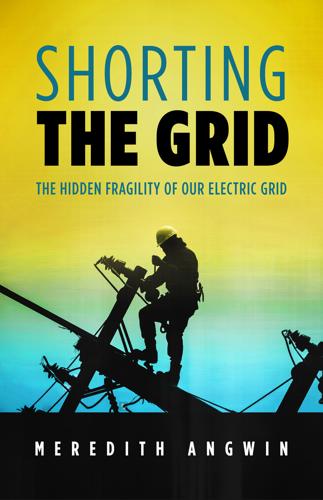
Shorting the Grid: The Hidden Fragility of Our Electric Grid
by
Meredith. Angwin
Published 18 Oct 2020
Without electricity, women must pump water, heat water over a fire or on a stove, use the heated the water for washing or cooking, and constantly tend the fire or the stove. Bryce describes Lyndon Johnson campaigning for himself and for electricity in the hill country of Texas in the 1930s. With electricity, Johnson said, women would have water pumps and washing machines instead of washboards. They would have a way to keep cooked food overnight in the refrigerator. A woman’s life would not be a constant round of drudgery. Lyndon Johnson was correct. Today, electrification in India achieves similar gains in release from drudgery.278 I know that some people think we should not have electricity whenever we want to use it. These people usually have a rosy view of a low-electricity-use lifestyle.
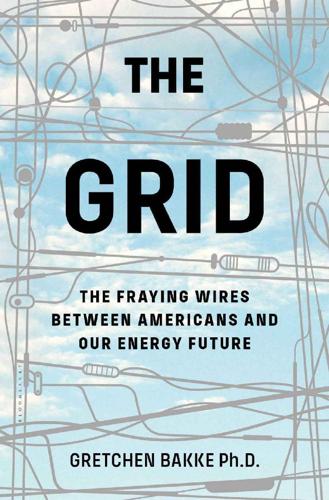
The Grid: The Fraying Wires Between Americans and Our Energy Future
by
Gretchen Bakke
Published 25 Jul 2016

Capitalism in America: A History
by
Adrian Wooldridge
and
Alan Greenspan
Published 15 Oct 2018
Michael Cox, a former chief economist of the Federal Reserve Bank of Dallas, calculates that the total lifetime hours worked declined by about 25 percent over the twentieth century. Some of the most striking advances were made against domestic toil, thanks to the arrival of “electronic servants” in the form of washing machines, stoves, microwave ovens, and dishwashers. In 1900, marriage for a working-class woman who couldn’t afford servants was tantamount to a life sentence of domestic drudgery. Stanley Lebergott has estimated that the average housewife devoted forty-four hours a week to preparing meals and washing the dishes, seven hours a week to laundry, and seven hours a week to cleaning. That may be a conservative number.

Austerity Britain: 1945-51
by
David Kynaston
Published 12 May 2008
‘Nothing on earth would ever persuade me to have my home anywhere but in England, where my ancestors have lived ever since they sacked and burned the farms of East Anglia fifteen hundred years ago.’19 About the same time, Mass-Observation put the question to the female members of its panel: ‘What are your feelings about housework?’ Predictably, there was no shortage of replies, from housewives of varying ages and varying degrees of contentment: I think housework becomes infinitely easier with the right tools. I consider every housewife should be able to have a washing machine, a proper wringer, a vacuum cleaner and a refrigerator. Without these tools, a lot of the work is a drudgery and the result is either the woman doggedly keeps on at her work becoming a kind of martyred housewife, or she just skips the lot and a fusty dusty house results. (37) I like Monday least as after a slight relaxation of work on Sunday I find it very hard to get going again on Monday.

Demanding the Impossible: A History of Anarchism
by
Peter Marshall
Published 2 Jan 1992